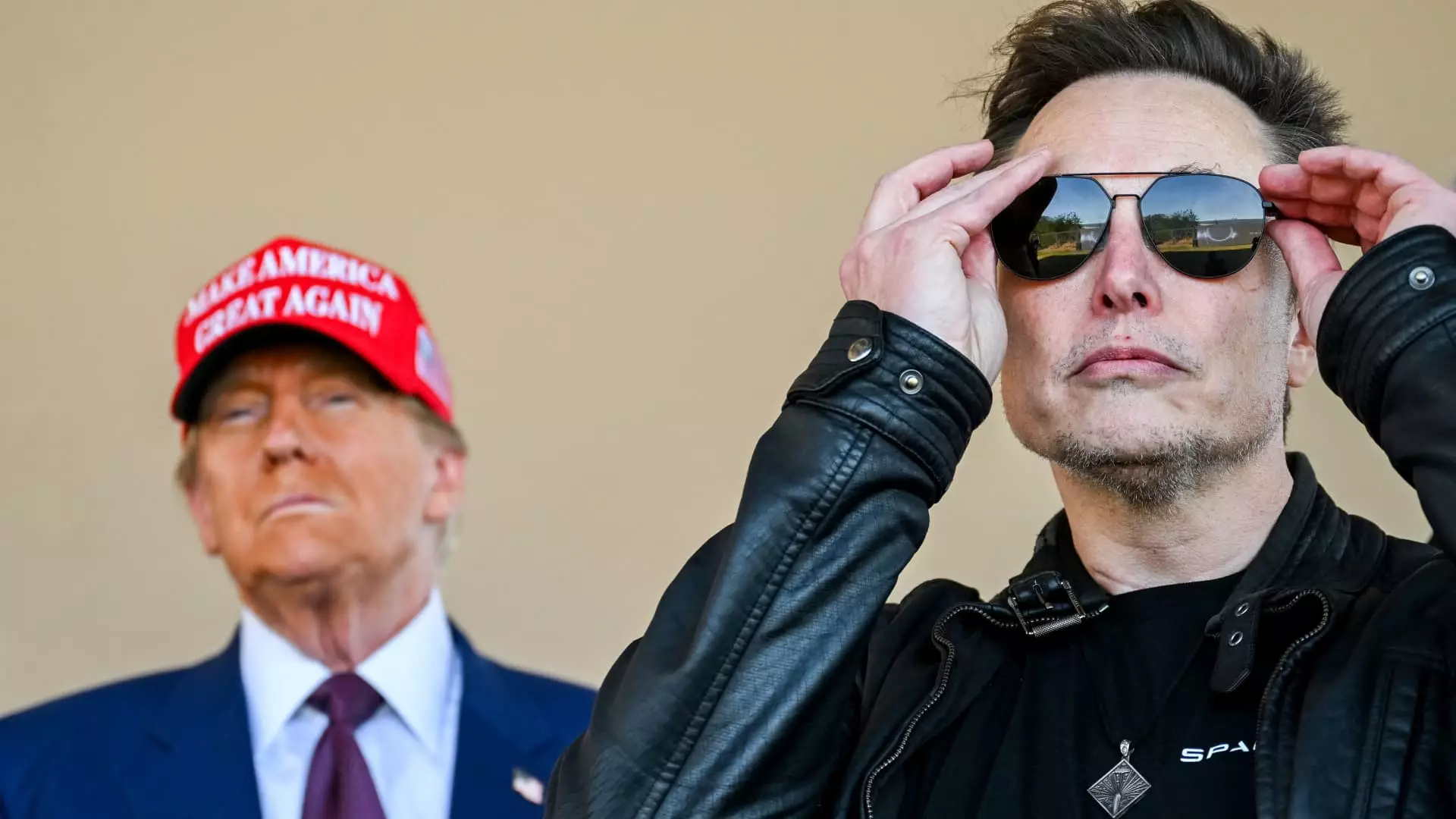As the political landscape in the United States continues to evolve, the interplay between technology, media, and governance is more pronounced than ever. The recent maneuverings in Congress, particularly surrounding the government’s funding legislation, have uncovered a new layer of influence exerted by figures from the tech industry. At the center of this debate is Elon Musk, whose vocal opposition to a bipartisan bill raised eyebrows among lawmakers, resulting in significant discussions over the nature of power in contemporary politics.
The Fallout from the Funding Bill Controversy
With President-elect Donald Trump on the verge of assuming office, the contours of governance are being actively reshaped. A 1,500-page funding legislation drafted by House Speaker Mike Johnson faced an unexpected fate when Musk publicly denounced it through numerous posts on X (formerly Twitter). The bill, which was essential in preventing a government shutdown, saw its trajectory influenced heavily by Musk’s statements. The Democratic response to Musk’s engagement has been sharp and pointed, with accusations that his social media presence undermines democratic processes.
Critics, particularly among Democratic lawmakers, have argued that Musk’s intervention reveals an uncomfortable truth about the power dynamics prevalent in modern politics. Lawmakers questioned whether an individual without an electoral mandate should exert such influence over critical government functions. Representative Jim McGovern poignantly encapsulated this sentiment when he stated that Musk’s wishes seemed to dictate the legislative agenda of his Republican counterparts.
The conflict of interest between technocrats like Musk and elected officials has sparked significant dialogue about leadership and accountability within the Republican Party. Although Trump remains the nominal leader, the impact of Musk’s platform raises questions involving both governance and media influence. Notably, Musk’s remarks have led to ridicule and skepticism, with some members of Congress jokingly referring to him as “President Musk.” Such comments underscore the frustration felt by those who believe that billionaires are infiltrating policy discussions that should be left to elected representatives.
Nevertheless, some Republican voices have aggressively defended Musk, viewing him as a vehicle for transparency. Senator Bill Hagerty of Tennessee lauded Musk’s ability to inform the public about legislative issues through social media, expressing gratitude for Musk’s role in shedding light on the workings of government. This duality of perception—seeing Musk as either a threat or a boon—further complicates the narrative surrounding the intersection of media and governance.
The Dual Nature of Musk’s Influence
The discordance in perceptions of Musk’s role reflects a broader trend in American political discourse, where influencers can sway public opinion while simultaneously being perceived as outsiders to established bureaucratic norms. During the funding bill crisis, the actions of influential figures like Musk shifted the focus from party lines to individual personalities. Ultimately, this begs the question: Does the presence of a mega-influencer like Musk enhance the democratic process, or does it erode it?
Democrat Elizabeth Warren’s sharp criticism of Musk, asserting that the richest man in the world should not have a say in governmental affairs, resonates with a growing unease about wealth concentration in political spaces. Her comments underscore a critical acknowledgment that the unregulated power of tech moguls poses risks to democratic integrity.
Looking ahead, the implications of this unfolding power dynamic raise fundamental questions about governance moving into the Trump administration. Amidst the chaos of last week’s negotiations, Senator Chris Coons articulated a concern that the lack of unity within the Republican Party could obstruct the passing of Trump’s agenda when tensions once again flare in March.
The tension between the traditional mechanisms of governance and the disruptive force of platforms like X demonstrates that the nature of political dialogue is changing radically. An environment where high-stakes legislators must take into account the whims of an unrestrained billionaire complicates already fraught negotiations and risks engendering further chaos.
As Elon Musk’s presence looms larger over the political stage, the ramifications extend far beyond casual social media exchanges. His ability to invigorate discourse among the public and lawmakers alike reflects a significant shift in political engagement in the United States. It offers a glimpse into a future where governance may be influenced less by geographical constituencies and more by the broadcasting capacity of individual personalities. Whether this shift is ultimately beneficial or detrimental remains to be seen, but it certainly heralds a new era in the interplay between technology and politics in a complex, interwoven society.


Leave a Reply